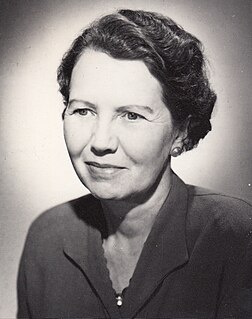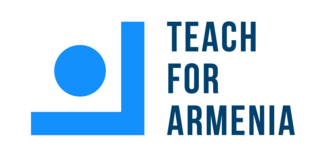Daystar is a Christian liberal arts university in Nairobi.
Education in Africa is governed by the ministries of education in each country.
{Use British English|date=May 2013}}
Professor Chacha Nyaigotti-Chacha is a Kenyan playwright and consummate educationalist. He has served as an executive secretary of the Inter-University Council for East Africa (2000–2010), and was the first CEO of the Kenyan Higher Education Loans Board (1995–2000). He is currently serving as the Chairman of the Kenyan Commission for University Education (CUE).
Camfed is an international non-governmental, non-profit organization founded in 1993 whose mission is to eradicate poverty in Africa through the education of girls and the empowerment of young women. Camfed programs operate in Zimbabwe, Zambia, Ghana, Tanzania and Malawi.
The American India Foundation is a nonprofit American organization that is devoted to accelerating social and economic change in India. The AIF has partnered with 227 of India's NGOs to build a trusted network for implementation, scale, and sustainability while raising over $84 million since its inception. It is one of the largest secular, non-partisan American organizations supporting development work in India.
Barefoot Foundation is a Colombian charity founded by pop artist Shakira in 1997, with the aim of helping poor and impoverished children. The Pies Descalzos mission statement is "The Barefoot Foundation works to ensure that every Colombian child can exercise their right to a quality education. Our model targets displaced and vulnerable communities by addressing their unique needs."
Manasses Kuria was a Kenyan Anglican Archbishop. He was the second African Archbishop and Bishop of Nairobi in the Anglican Church of Kenya.
The Women’s Institute for Secondary Education and Research (WISER) is a non-profit NGO working to build the first girls’ boarding school and research center in Muhuru Bay, Kenya.
Zakat Foundation of America (ZF) is a Chicago-based, Muslim non-profit dedicated to alleviating the immediate needs of the poorest communities, as well as providing emergency relief, post-disaster rehabilitation, sustainable development, education, healthcare, orphan sponsorship, and seasonal programs such as Ramadan Iftars and Udhiya/Qurbani. Zakat Foundation of America is registered under 501(c)(3) as a non-profit charity organization; therefore all donations are tax exempt.
Nuru International is a U.S.-based social venture that equips the poor living in remote, rural areas to end extreme poverty in their communities. Nuru is a Kiswahili word that means "light." Nuru International currently works in Kenya and Ethiopia.
Educational equity, also referred to as equity in education, is a measure of achievement, fairness, and opportunity in education. The study of education equity is often linked with the study of excellence and equity.

In the recent history of the expansion of LGBT rights, the issue of teaching various aspects of lesbian, gay, bisexual and transgender life and existence to younger children has become a heated point of debate, with proponents stating that the teaching of LGBT-affirming topics to children will increase a sense of visibility for LGBT students and reduce incidences of homophobia or closeted behavior for children, while opponents to the pedagogical discussion of LGBT people to students are afraid that such discussions would encourage children to violate or question religiously or ideologically motivated rejections of non-heterosexuality in private settings. Much of the religious and/or social conservative aversion to non-heterosexuality and the broaching of the topic to juveniles tends to occur in regions with a historic demographic dominance or majority of adherents to an Abrahamic religion, particularly the majority of denominations of Christianity, Islam and Judaism, while those who were raised in those religions but advocate or take more favorable/nuanced positions on LGBT issues or are LGBT themselves may often be ostracized from more socially conservative congregations over the issue.

Mastercard Foundation is a global foundation established by Mastercard in 2006. Since its creation, the Foundation has partnered with a number of worldwide Non-governmental organizations and core partners aiming to ameliorate financial life, primarily in the Global South. Its objective is to use a $2 billion endowment on Microfinance programs. With these programs, the Foundation's goal is to make global economics more accessible to people around the world. These programs also strive to give youth around the world new educational experiences and access to financial services and programs.
Sarva Shiksha Abhiyan, or SSA, is an Indian Government programme aimed at the universalisation of elementary education "in a time bound manner", the 86th Amendment to the Constitution of India making free and compulsory education to children between the ages of 6 to 14(estimated to be 205 million children in 2001) a fundamental right. The programme was pioneered by former Indian Prime Minister Atal Bihari Vajpayee.
The social determinants of health in poverty describe the factors that affect impoverished populations' health and health inequality. Inequalities in health stem from the conditions of people's lives, including living conditions, work environment, age, and other social factors, and how these affect people's ability to respond to illness. These conditions are also shaped by political, social, and economic structures. The majority of people around the globe do not meet their potential best health because of a "toxic combination of bad policies, economics, and politics". Daily living conditions work together with these structural drivers to result in the social determinants of health.

Helen Marguerite (Emery) Roberts was an American writer, photographer, and multilingual educator. From 1958 to 1975, she battled illiteracy in Africa, teaching reading, writing, health and Christian religion to thousands of illiterate adults. In the course of her African work, she mentored and sponsored many promising young Africans, encouraging them to pursue higher education, including Barack H. Obama, the father of President of the United States Barack Obama.
The socioeconomic impact of female education constitutes a significant area of research within international development. Increases in the amount of female education in regions tends to correlate with high levels of development. Some of the effects are related to economic development. Women's education increases the income of women and leads to growth in GDP. Other effects are related to social development. Educating girls leads to a number of social benefits, including many related to women's empowerment.

Teach For Armenia is a non-profit organization, which aims to expand educational opportunities for all children in Armenia, regardless of their socio-economic circumstances, by recruiting, training, and supporting high-achieving graduates and professionals to teach for a minimum of two years in the most underserved schools across Armenia.





